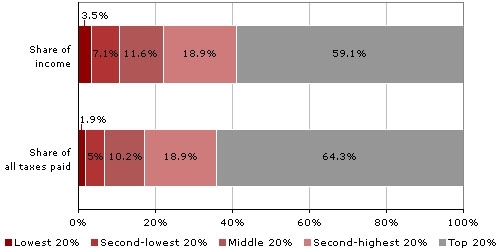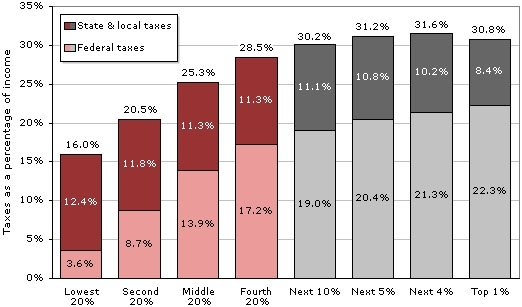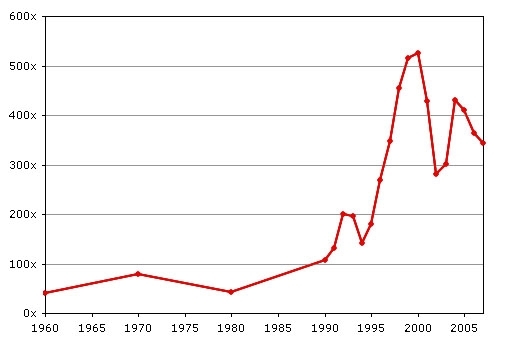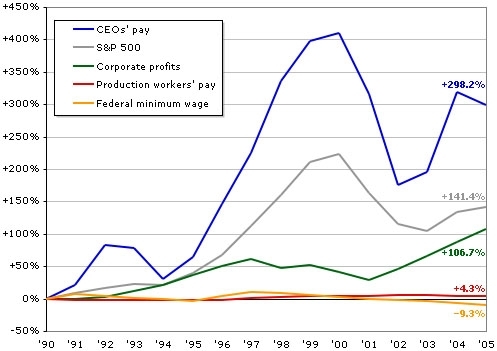gbaji wrote:
Ari. You're still missing the point I was making. We're still talking about "raising taxes" in the US. The fact that you think this is a good thing is a separate argument.
Sorry, sorry, I'm a REALLY slow poster in reply. [quote+Gbaji]I'm just trying to get folks to stop parroting this bizarre notion that since the top marginal tax rate was 70% in the 60s and 90% in the 50s that this magically means that we're paying on total less taxes today than ever in history.
Gbaji wrote:
That's simply not true. The left is attempting to make this argument about the right wanting to keep historically low taxes to help out their rich buddies, when what it's actually the left that is trying to increase our total tax burden to historically high levels (again, aside from WW2). It is deceptive to make that argument, yet I keep hearing it repeated. I'm just trying to get people to recognize that this is about increasing spending above historical levels in the US, and raising taxes above those historical levels as well. When the GOP demands spending cuts instead of tax increases, we're not changing anything in terms of historical levels. We're fighting *against* increases which the left is trying to ram past the American people.
Okie doke. Look at Australia, whose tax revenue is 27.1% of GDP, and the USA, whose tax revenue is 24% of GDP. There are two main sources of tax in Australia. A flat Goods and Services tax of 10% that has never been raised. and Income Tax like so:
Taxable income
0 - $6,000
Nil
$6,001 - $37,000
15c for each $1 over $6,000
$37,001 - $80,000
$4,650 plus 30c for each $1 over $37,000
$80,001 - $180,000
$17,550 plus 37c for each $1 over $80,000
$180,001 and over
$54,550 plus 45c for each $1 over $180,000
That's SORT of 0% for $6,000, 30% for $37,000, 37% for %80,000 and 45% for $180,000. Except it equalises things so for example if you earn $200,000 you pay nothing on the first $6000, 15% on $6k to $37k; 30% on $37k to $80k; 37% on $80k to 180k, and only 45% on the the $20k between 180k to 200k.
And in reality anyone with $180k can afford to fiddle it down with tax rebates, allowances, Family Trusts and flat out pretending to be a Company and mostly paying Company tax rates. Not over $180k does the last, but it is done.
Ok, so Australia manages to rake in 27.1 of GDP in taxes with the highest tax BELOW 50%. Nilati has since found us this:
Quote:
The top marginal tax rate was reduced to 58% in 1922, to 25% in 1925, and finally to 24% in 1929. In 1932 the top marginal tax rate was increased to 63% during the Great Depression and steadily increased, reaching 94% (on all income over $200,000) in 1945. During World War II, Congress introduced payroll withholding and quarterly tax payments. Top marginal tax rates stayed near or above 90% until 1964 when the top marginal tax rate was lowered to 70%. The top marginal tax rate was lowered to 50% in 1982 and eventually to 28% in 1988. However, in the intervening years Congress subsequently increased the top marginal tax rate to 35% (the top marginal tax rate as of 2007)
From Nilatai's quote, it looks like for 100 years the top tax rate in the USA has been OVER 50% longer than it has been UNDER 50%. By my reckoning you don't have to go NEAR your record top marginal highs to cover 24% of your GDP, if Australia is at 27% with a top rate of 45% A rough guesstimate would be 39%. Even one percentage point successfully taxed more on the super-rich would rake in obscene amounts of money. You'd probably rake in HEAPS just by funding the Revenue department twice as much, to audit more citizens and corporations. Another example of spending that reaps more than it costs.
Edited, Aug 15th 2011 11:53pm by Aripyanfar 







